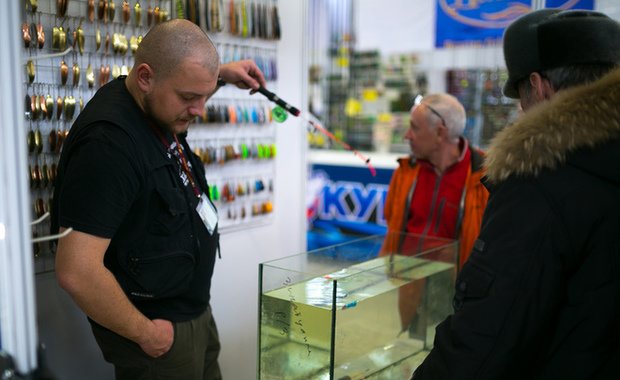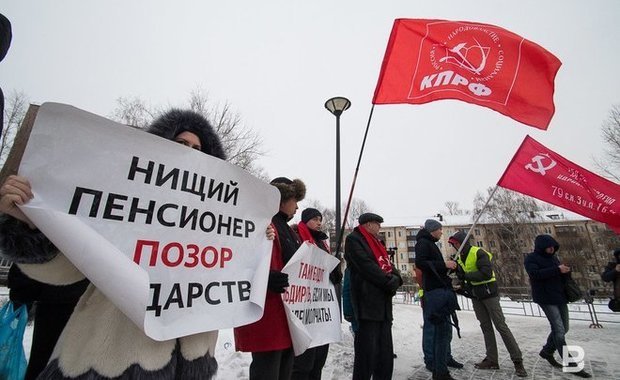''If a law is adopted or not depends on the power of people's reaction!''
Boris Nadezhdin on the influence of protests on lawmaking and the absurdity of ''Klishas bills''
''Ambiguous laws are adopted constantly, and society somehow adapts to them. But if you adopt a terrible and crazy law, nobody will obey it,' notes former lawmaker Boris Nadezhdin. ''The fight of the Federal Service for Supervision of Communications, Information Technology and Mass Media with Telegram, which all functionaries and deputies use, is a classic example. In an interview with Realnoe Vremya, the politician told why deputies deal with insignificant laws, if Klishas's laws will work and if the phrase ''Putin is leading the country to a deadlock!'' insults authorities.
''It's impossible to imagine some deputy to say: 'We don't vote for the budget if you don't give some regions money''
Mr Nadezhdin, the State Duma in its current version has been 25 years. Are there many laws (not bills) at the moment created exactly by deputies?
The Duma doesn't take part in the creation of laws at all now. Although some bill is anyway created there at times, it doesn't play a noticeable role: the Duma is controlled by the president's administration through United Russia, and nothing unapproved by executive power can arise there. Or, more precisely, it can arise, but nothing will be adopted. Though times were different in the history of the post-Soviet Duma – Communists controlled the Duma in 1993-1999, and President Yeltsin often vetoed laws it adopted: then laws often were born right in the Duma, while the government had nothing to do with it. A lot of laws were adopted in fact!
Then there was a period in 1999-2003 (by the way, it was my session) when there was a very interesting story in terms of adoption of laws in the parliament. Executive power didn't have a majority in the Duma to adopt a law, United Russia needed to agree with somebody from the Duma opposition. This is why from time to time the Duma had situations when voices of the Union of Right Forces, whose part I was as the first deputy head of the faction, both me and my colleagues, could impose United Russia our own amendments.
''The Duma doesn't take part in the creation of laws at all now. Although some bill is anyway created there at times, it doesn't play a noticeable role: the Duma is controlled by the president's administration through United Russia, and nothing unapproved by executive power can arise there.'' Photo: duma.gov.ru
For example, I could say to United Russia party members: ''Guys, I won't vote for the budget if you don't consider this amendment'', and I managed to make a lot of amendments to laws that are still applied. For instance, I persuaded United Russia party members to include the obligation to publish all election reports in every polling station to the law On Key Guarantees of Electoral Rights of Citizens. And now if you want, you can easily have a look at who received voices at your polling station and how many voices. This, by the way, suddenly reduced the possibility of forging. And earlier, real results in many regions had nothing to do with what was written by many election committee members in the end. Yes, falsification exists today, too, but this happens only in polling stations, not in general. It's simply impossible to falsify a general result.
Does it mean the country got many sound and necessary laws precisely in 1999-2003?
Maybe, though there were moments when United Russia was blocked to adopt a law with the CPRF, let's say, to adopt the new, as I say, the Stalinist anthem in 2000. In this case, we were against, while Communists were glad that the anthem would be Stalinist, and because of the Communists we still have been singing almost An unbreakable union….
But thanks to dialogue when adopting the same budget, our faction managed to get Kudrin to allocate money for many higher educational institutions – for my own Moscow State University's Faculty of Physics: the time was hard, after the default, and the university received money. There is no such thing now. It's impossible to imagine some deputy to say: ''We won't vote for the budget if you don't give some regions money''. They will vote like the government will say.
We didn't go to the parliament in late 2003, it's been controlled by United Russia since then, and here is the approval of everything that the government introduces to the Duma. It's clear that some deputies or factions introduce something as well, but these projects are never adopted. Even when it's seen a future law is beneficial, obvious and even joyful for the people, to increase pension, for instance, it will be said the government is introducing it.
''I can say Yabloko party works much more seriously than these parties do – they always create an alternative Russian budget and generate many legislative ideas in ecology, but what's the sense? Yabloko isn't in the parliament! As for LDPR, who is interested in Zhirinovsky's story about his support of the poor and Russians?'' Photo: duma.gov.ru
''Who is interested in Zhirinovsky's story about his support of the poor and Russians?''
There is a feeling that we don't have any deputies at all really working on laws.
They exist, of course! Deputy Pavel Krasheninnikov, who was together with me in the URF in 1999-2003, is an exception here. Pavel has been an unchangeable chairman of the lawmaking committee for many years – the committee that dealt with and deals with civic, criminal and constitutional laws. It's a key figure when creating civic, family and housing laws. Now deputies very often sit and write down how one should vote, while Krasheninnikov doesn't sit but offers topical legislative ideas, he can often say how the government should explain some norms of a law, and its functionaries listen because Pavel is also a former justice minister, which means he's a qualified person who has been working on codes for at least 20 years.
Here we should note head of the budget committee of the Duma Andrey Makarov. Of course, his committee isn't so influential now as it used to be when I was a deputy (then three people set budget parameters, including Yegor Gaidar), but the government always listens to Makarov.
But parties from the so-called ''systemic opposition'' say they constantly introduce important bills. Are they so stupid?
I can say Yabloko party works much more seriously than these parties do – they always create an alternative Russian budget and generate many legislative ideas for ecology, but what's the point? Yabloko isn't in the parliament! As for the LDPR, who is interested in Zhirinovsky's story about his support of the poor and Russians?
Communists also have things to offer, but Putin created a system in which only he manages the parliament, and the Kremlin doesn't care what Zhirinovsky, Zyuganov or Yavlinsky think in this system.

''Now deputies are considering non-trivial laws – on fishing, coarse woody debris removal, that's to say, they adopt the laws without which we could easily live well – the same fishing and coarse woody debris removal didn't regulate laws but some local instructions.'' Photo: Roman Khasayev
When we hear that the next tightening political law has been adopted in the Duma, we think: ''Doesn't the country really have other problems that require adopting laws?'' The law on protection of animals can't be adopted for many years already.
I will tell you the truth – all basic legislation has already been adopted in the country. Remember the situation in the 90s when the country didn't have basic codes, and the same Civic Code was completed by 2006 thanks to mentioned Krasheninnikov (though the first part was adopted in 1995), then, the Tax Code in its current version is a product of the noughties. And the country anyway can't live by these laws. And now deputies are considering non-trivial laws – on fishing, coarse woody debris removal, that's to say, they adopt the laws without which we could easily live well – the same fishing and coarse woody debris removal didn't regulate laws but some local instructions.
As for other laws, I have a great affection for animals, but it's hard to compare the Tax or Civic Codes with the law on protection of animals.
But animals are both culled and tortured in the country. And the law seems to have been created, but why isn't it adopted?
Because it turns out that the problem of animals isn't socially important. I will explain the authorities' way of thinking to you. Of course, we all want animals to be protected. But for some reason, there aren't rallies with cats and dogs asking to adopt this law. And you know, not all relations in society must be regulated by a specific law. There is no law about the duty to give up a seat to old ladies in the metro or in the bus, but many people still do. Cats and dogs can't be tortured, and most people don't torture them. I will tell more – there is no law for February to follow January, but everyone sticks to it somehow.
''In terms of content, the Klishas laws are pointless''
The pension reform was socially important, so what? The laws were adopted.
If a law is adopted or not will depend on the power of people's reaction, you know. Let's remember the monetisation of concessions in the 2004-2005s: then a very serious and big story began in the country in this respect, pensioners in Moscow even blocked the Leningrad Highway, this is why authorities decided to soften the reform. The pension reform might seem to be a more serious story, but only 10,000 people went to the biggest protest march in Moscow for this reason and only 100 people in my native Dolgoprudny, that's to say, one in 1,000. I assure you that if 1 in 100 people went to the protest in Dolgoprudny, the law would be postponed for long, shifted. And here authorities saw that even if the people are kicking up a fuss, they are kicking up a fuss calmly and unnoticeably. There are discontent people, but nobody tries to actively oppose the reform.

''Authorities saw that even if the people are kicking up a fuss, they are kicking up a fuss calmly and unnoticeably. There are discontent people, but nobody tries to actively oppose the reform.'' Photo: Maksim Platonov
Bills from senator Andrey Klishas about the punishment for fake news, disrespect for authority, the sovereign Internet are familiar for many people. Will they be adopted?
Different ''Kremlin towers'' had different attitudes to these initiatives – at first, they seemed to have said that Klishas invented it on his own and this wouldn't happen, but they were adopted in the first reading, and they decided such a law would appear. Though the Kremlin can often offer a sample – they adopt a law in the first reading and look at society's reaction. I think the Kremlin will look at the citizens' reaction in pain. In terms of content, these laws are pointless, though in skilful hands of law enforcement agents they can be used as a bat for the same opposition. But they will definitely not have a great impact on people's life.
Why not?
The attempt to create the same isolated internet is like a situation of GLONASS and GPS. You can create GLONASS, but everyone will use GPS! GPS will disappear only if GLONASS is better.
I'm ready to believe that the law on sovereign internet won't have an impact either. But I'm not sure about the law on disrespect for authorities – it sounds serious and threatening.
Such a law is rubbish. We already have a law on disrespect for the emblem, the flag, but everything is clear there – a person can burn or tear the flag. What disrespect are they talking about here? So I go on a demonstration or rally and shout: ''The governor is a theft!'', so what, do I have to be jailed for it? It's stupid because the governor has had means of protection from such accusations for long – he can go to court if I slandered him. The law on disrespect for authorities takes the discussion into some strange direction because the concept of ''disrespect'' is quite partial. Is the phrase ''Putin is leading the country to a deadlock!'' insult or disrespect? I don't know.
Can the idea of such a law be linked with a mass of criticism of authorities in social networks?
It can, but the Internet is full of such stories. However, can a law stop such a wave of criticism? I am not sure.

''A classic example here is the fight of the Federal Service for Supervision of Communications, Information Technology and Mass Media with Telegram: the service fights it, blocks it, while Telegram runs, and, the funniest thing is that all functionaries and deputies use it.'' Photo: Timur Rakhmatullin
What's your forecast of adoption of ambiguous laws in the next five years, to the end of Putin's current presidential term? Will there be many of them?
Ambiguous laws are adopted constantly, and society adapts to them somehow. But if you adopt a terrible and crazy law, nobody will obey it. Russia has a road traffic code, according to which speed limit can't exceed 60 kilometres per hour in cities and 90 in the suburbs. And the cameras are everywhere, but everyone drives 79 kilometres per hour in the city and 109 kilometres per hour in the suburbs. Why? Because sanctions are imposed if you exceed 20 kilometres per hour. The same thing happens to new laws – there will be allowances the people will fit. A classic example here is the fight of the Federal Service for Supervision of Communications, Information Technology and Mass Media with Telegram: the service fights it, blocks it, while Telegram runs, and, the funniest thing is that all functionaries and deputies use it. When society doesn't have a feeling that the same parliament represents society, it's hard to expect people to obey laws. This situation has drawbacks, but it also has advantages – whatever Klishas writes about the sovereign internet, real life will go on.
If there weren't a serious goal, wouldn't many political laws (on rallies, on NGOs) be probably adopted?
No, many laws aim to scare someone and give the election bat into law enforcement agents' hands. On the other hand, we have laws against corruption, on prohibition of Federation Council members from having a residence permit in another country, while Mr Arashukov was calmly sitting in the upper parliament chamber with a residence permit in the UAE and who, as we were said, had stolen many things and almost killed somebody. So think if our laws are strict.